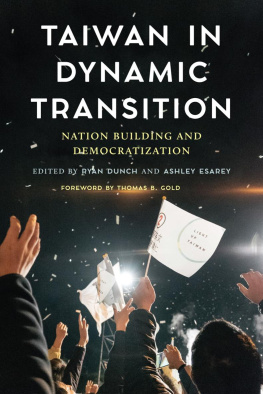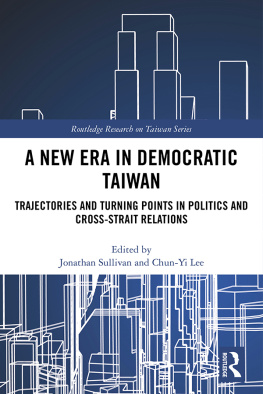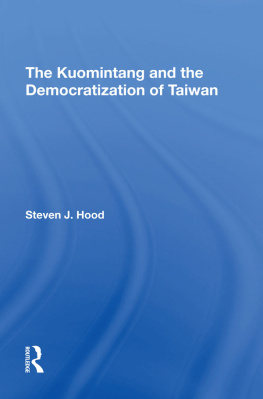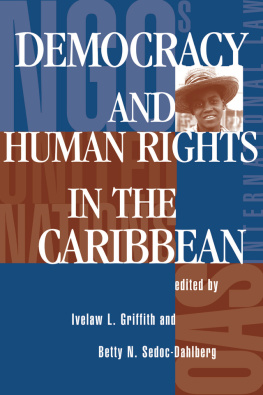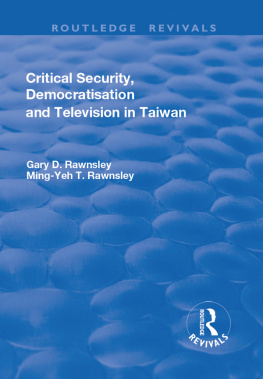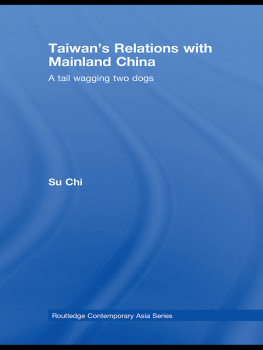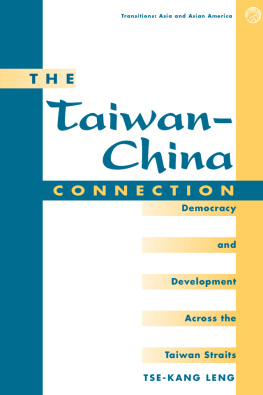

This book has been brought to publication with the generous assistance of Marguerite and Gerry Lenfest.
Naval Institute Press
291 Wood Road
Annapolis, MD 21402
2007 by Richard C. Kagan
All rights reserved. No part of this book may be reproduced or utilized in any form or by any means, electronic or mechanical, including photocopying and recording, or by any information storage and retrieval system, without permission in writing from the publisher.
ISBN: 978-1-61251-755-1 (eBook)
Library of Congress Cataloging-in-Publication Data
Kagan, Richard C., 1938
Taiwans statesman : Lee Teng-Hui and democracy in Asia / Richard C. Kagan.
p. cm.
Includes bibliographical references and index.
1. Lee, Teng-hui. 2. PresidentsTaiwanBiography. 3. TaiwanPolitics and government19882000. I. Title. II. Title: Lee Teng-Hui and democracy in Asia.
DS799.833.L44K34 2007
951.24' 905092dc22
[B]
2007021879
14 13 12 11 10 09 08 07 9 8 7 6 5 4 3 2
First printing
Book design: David Alcorn, Alcorn Publication Design
To all Taiwanese who have suffered and fought for democracy, sovereignty, and independence. May this biography provide you with encouragement and vision.
To my mother and father who would be as proud of me as I am of them.
Table of Contents
Photos follow
T AIWAN IS AN ISLAND 100 miles off the southeastern coast of China. The island is roughly the size of the Netherlands or West Virginia, and, despite being colonized many times, it has its own history, language, and culture.
Through segments of its history, Taiwan has been occupied by foreign empires. The Dutch and the Spanish claimed it in the seventeenth century, and the Japanese ruled the island from 1895 until 1945. After Japans defeat in World War II, Taiwan was occupied on behalf of the Allies by Chiang Kai-sheks Kuomintang (KMT) Nationalists, who were fighting a losing civil war in China. Taiwan and its people had nothing to do with that conflict.
Chiang lost the civil war in 1949, moved his government to the island, and subjected the Taiwanese to martial law, a regime that lasted until 1987. Since 1949, then, Taiwan has been a self-ruling country. Despite Chinas claims to the contrary, Taiwan is not a renegade province. It holds its own democratic elections and has its own military, currency, bank, stock exchange, and so on.
When Taiwan lifted martial law in 1987, democracy gradually came to Taiwan. Lee Teng-hui was one of the major facilitators of this democratic development. Upon the passing of then-president Chiang Ching-kuo, who was the son of Chiang Kai-shek, Lee was nominated by the KMT to finish Ching-kuos term. In 1996 Lee was elected president of Taiwan in his own right.
Lee Teng-hui is a statesman and a friend of mine. Over the years, I have gotten to know him as someone who cares not only about political matters, but also about spiritual matters. He is a friend who has brought a unique cultural identity to Taiwan, and who has done that without violence. Lee has led the effort to create a model democracy in Taiwan.
The problem I have with the way the United States treats Taiwan today is that I believe we should recognize Taiwans political miracle, but we dont. I also believe that we should hold Taiwan up as an example for other countries to emulate, but we dont. While we give all attention to China and regularly lay out the red carpet for the unelected Butchers of Beijing, we shun Taiwans leaders to the extent that we do not even allow the democratically elected leaders of Taiwan to come to Washington, D.C.
It was therefore a very special and memorable occasion for me to personally welcome Lee to Washington in October 2005, when he no longer held the office of president of Taiwan, during a reception held under the dome of the U.S. Capitol. I remember that the night before the reception, there were some demonstrators outside the building where we were having dinner who called President Lee a troublemaker. At the reception, I pointed out to him that he was in the capital of the United States, where we celebrate those who make trouble for tyrants and where we have monuments for some of the greatest troublemakers of history. Thomas Jefferson and George Washington were among the leading troublemakers for the tyrants of their day.
Lee is a great hero of freedoma hero who deserves the next Congressional Gold Medal.
REP. DANA ROHRABACHER (R-CALIF.)
T WO VETERANS OF THE TAIWAN INDEPENDENCE MOVEMENT, Lo Fu-chen, who is the former Taiwan representative to Japan, and Ng Yu-jin, who is the former chairman of World United Formosans for Independence, approached me in 2004 to ask me to consider writing a biography of former Taiwanese president Lee Teng-hui. I did not know much about Lee, but I did know that I had asked him a year before if I could write his biography and he had refused my offer. Lo and Ng, however, were able to procure Lees commitment to my project. They have paved the way for this biography. For their confidence in me, their support, and their tolerance in extending my publishing deadline, I want to thank Lo and Ng unreservedly.
My greatest pleasure in writing this book has been meeting President Lee Tenghui. From the very beginning, he was kind, humorous, and attentive to my questions and arguments. Before meeting him, I thought of him as the KMT president of the Republic of China. My friends in the reform movement depicted Lee as a soft leader of the party state, but still an enemy to be reckoned with. He was, they said, not quick to endorse full democratic reforms, punish KMT oppressors, and renounce the one-China policy. Hearing this, I was not sure I would like him.
After spending more than eighteen hours in one-on-one interviews with Lee and shadowing him for a week, I realized that he was more than just a politician of the ruling party. Not only did I come to admire him, I also changed myself. I developed an understanding of another approach to politics. I began to see the deep connection between cultural and political reform. Lees were not the reforms of the radicals nor of the conservatives, but of the long road through a personal spirituality and a commitment to democracy and redemptive justice. The reasons researching and writing this book took so long were that I had to witness and make peace with my own changes before I could put everything down on paper.
Finally, a note about Romanization: the Romanization of Chinese follows the style of each writer or the writers national tradition. There is no one style for all Chinese pronunciation. This is because of a preference for local (feral) rather than national (organic) usage.

I have been blessed to have many wonderful and thoughtful friends take the time and effort to criticize and comment on my manuscript. Willis Witter, deputy foreign editor of the Washington Times, has recrafted the language and exposition. Working with him as a coeditor has been the equivalent of taking a course on writing. Tom Meinhover, a former history teacher, has been a wonderful listener and nonantagonistic interrogator. David Denny, an economist with the U.S. Trade and Development Agency, assiduously read the biography and commented on U.S. policy issues, as well as the art of writing biography. Gordon Bennett, a professor in the Department of Government at the University of Texas, ensured that I did not slight the political science methodology in my description of Lee Teng-huis policies. John Tkacik Jr., a Taiwan scholar, provided me with jewels of information and guided me on how to approach and interview Lee.
Next page

